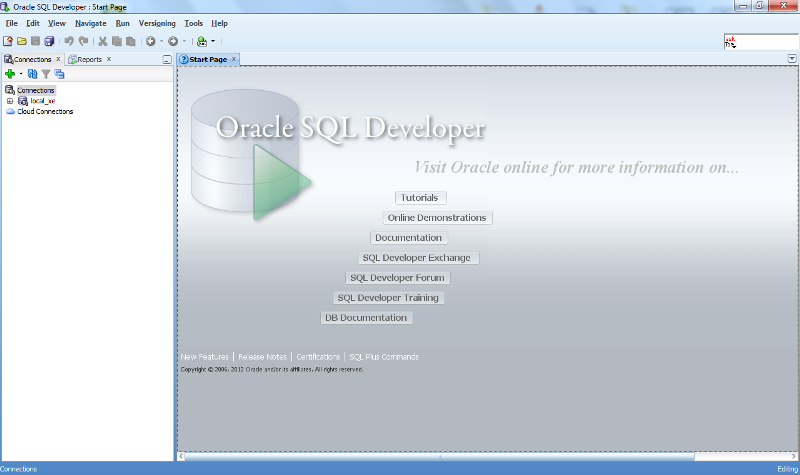Are you ready to unlock the power of Oracle and take control of your item allocations with precision and efficiency? In this comprehensive guide, we will delve into the world of SQL and Oracle, equipping you with the knowledge and skills to master SQL query for item allocations in Oracle. Whether you’re a beginner or an experienced database professional, this article will provide you with the essential insights and techniques to optimize your database management and streamline your business processes.
Introduction to SQL and Oracle
SQL (Structured Query Language) is a standardized programming language used for managing relational databases. It enables users to interact with databases, retrieve and manipulate data, and perform various operations on database objects. Oracle, on the other hand, is a powerful relational database management system that supports the implementation of SQL.
SQL plays a crucial role in Oracle, allowing users to extract valuable insights from vast amounts of data. With SQL, you can efficiently retrieve specific information, filter records based on conditions, sort and group data, and perform calculations and aggregations. The ability to write effective SQL queries is essential for managing item allocations in Oracle.
Understanding Item Allocations
Item allocations refer to the process of assigning or distributing items across different categories, locations, or entities. This allocation can be based on various factors such as sales, demand, inventory levels, or business rules. Item allocations play a vital role in inventory management, supply chain optimization, and ensuring the availability of products in the right places at the right times.
Effective item allocations require accurate and timely data analysis. SQL queries provide the means to extract relevant information from Oracle databases, enabling businesses to make informed decisions regarding item allocations. By mastering SQL query techniques, you can gain deep insights into your inventory and allocate items intelligently to maximize efficiency and profitability.
Basics of SQL Querying
Before diving into SQL query techniques for item allocations, it’s important to understand the basics of SQL querying. SQL queries are constructed using specific syntax and structure. The most common SQL statement is the SELECT statement, which retrieves data from one or more database tables.
A typical SQL query consists of keywords, table names, column names, conditions, and clauses. By specifying the desired columns, applying filters with conditions, and utilizing sorting and grouping options, you can tailor your query to retrieve the exact information you need.
Key Concepts for Item Allocations
To effectively query item allocations in Oracle, it’s essential to grasp key concepts related to database tables and relationships. Oracle databases consist of tables that store data in a structured manner. These tables are interconnected through relationships established using primary and foreign keys.
Understanding joins and unions are crucial for combining data from multiple tables. Joins allow you to retrieve data from related tables based on common keys, while unions enable you to combine data from multiple queries into a single result set. Additionally, aggregate functions like SUM, COUNT, and AVG are valuable for calculating totals, counting records, and obtaining average values.
Writing SQL Queries for Item Allocations
Now that you have a solid understanding of the basics and key concepts, let’s explore how to write SQL queries specifically for item allocations. A common scenario is selecting specific columns and records based on certain criteria. The SELECT statement allows you to choose the relevant columns and apply conditions using the WHERE clause to filter the data.
Additionally, you can sort the results using the ORDER BY clause and apply grouping and summarization using the GROUP BY clause and aggregate functions. These techniques help you organize and analyze the data, providing valuable insights into item allocations.
Advanced SQL Techniques for Item Allocations
To take your SQL querying skills to the next level, it’s important to explore advanced techniques. Subqueries and nested queries allow you to embed one query within another, providing a powerful way to retrieve complex data. You can also work with multiple tables by joining them using different types of joins, such as inner join, left join, right join, and full join.
Furthermore, using functions and expressions in your SQL queries enhances their flexibility and analytical capabilities. Functions like MIN, MAX, and AVG enable you to perform calculations on specific columns, while expressions allow you to create custom calculations and manipulate data. You can also modify data in Oracle tables using INSERT, UPDATE, and DELETE statements to facilitate item allocations.
Optimizing SQL Queries for Performance
Optimizing SQL queries is crucial for improving performance and reducing execution time. Indexing is a technique that enhances the retrieval speed of data by creating index structures on frequently queried columns. Analyzing query execution plans helps identify bottlenecks and optimize query performance by analyzing the steps executed by the database engine.
Using hints and query-tuning tools, such as Oracle’s Query Optimizer, can further optimize the execution plans and fine-tune the SQL queries. By applying these optimization techniques, you can significantly enhance the efficiency and responsiveness of your item allocation queries.
Best Practices for SQL Querying in Oracle
To ensure efficient and maintainable SQL queries, it’s essential to follow best practices. Writing clean and readable code with appropriate comments and indentation improves the maintainability and collaboration of SQL queries. Proper error handling and exception management ensure the stability and reliability of your database operations.
Security considerations are also important when working with SQL queries. Utilize bind variables and parameterized queries to prevent SQL injection attacks. Granting appropriate user privileges and implementing access controls ensures data security within your Oracle databases.
Conclusion
In conclusion, mastering SQL query for item allocations in Oracle is a valuable skill for anyone involved in database management and business intelligence. By understanding the basics of SQL querying, key concepts for item allocations, and advanced techniques, you can extract actionable insights and optimize your allocation strategies.
Remember to optimize your queries for performance, follow best practices, and prioritize data security. As you continue to explore and practice SQL querying in Oracle, you’ll gain confidence and proficiency, enabling you to make data-driven decisions and maximize the efficiency of your item allocations.
FAQs
- What is the difference between SQL and Oracle? SQL is a standardized programming language used for managing relational databases, while Oracle is a relational database management system that supports the implementation of SQL.
- How can I improve the performance of my SQL queries? You can improve the performance of your SQL queries by optimizing the query execution plans, indexing frequently queried columns, and using query tuning tools provided by Oracle.
- Can I use SQL queries to modify data in Oracle tables? Yes, SQL queries can be used to modify data in Oracle tables. You can use INSERT, UPDATE, and DELETE statements to insert new records, update existing records, and delete unwanted records, respectively.
- Are there any specific security considerations when working with SQL queries? When working with SQL queries, it’s important to use bind variables and parameterized queries to prevent SQL injection attacks. Granting appropriate user privileges and implementing access controls also ensure data security.
- What are some recommended resources for learning more about SQL and Oracle? There are several resources available for learning SQL and Oracle, including online tutorials, books, and official documentation. Some popular resources include Oracle’s official website, SQL courses on platforms like Coursera and Udemy, and SQL forums and communities.
See Also:
Beyond The Surface: Understanding The Devastating Consequences Of A Degloved Face











